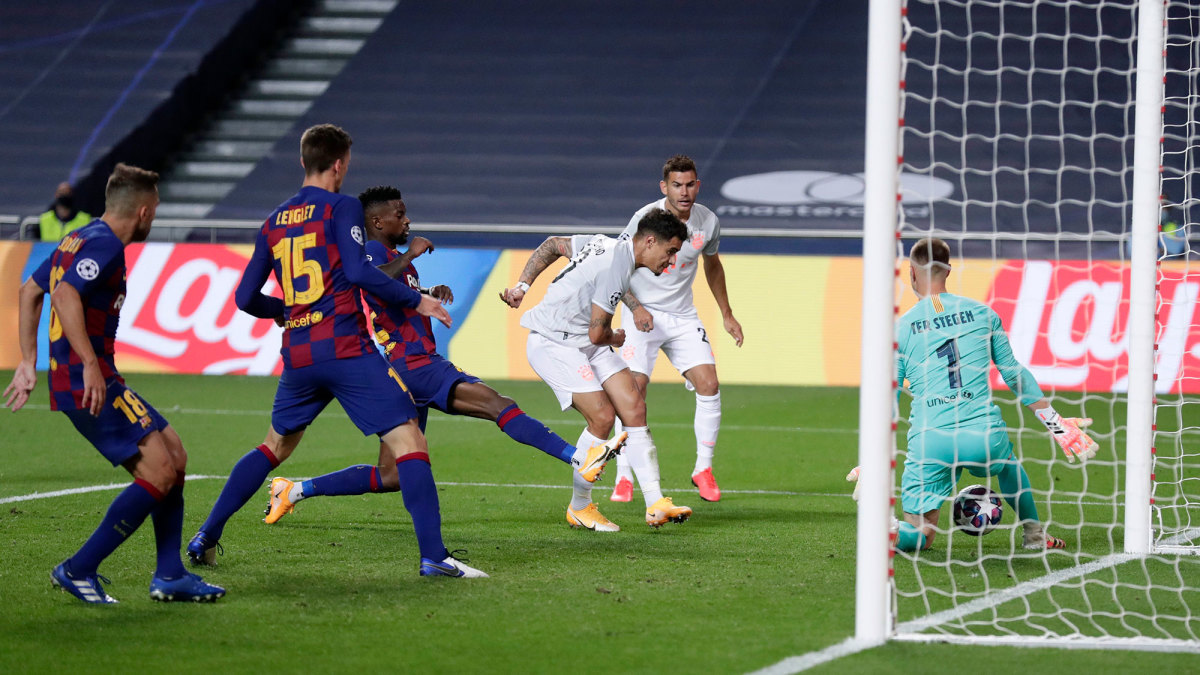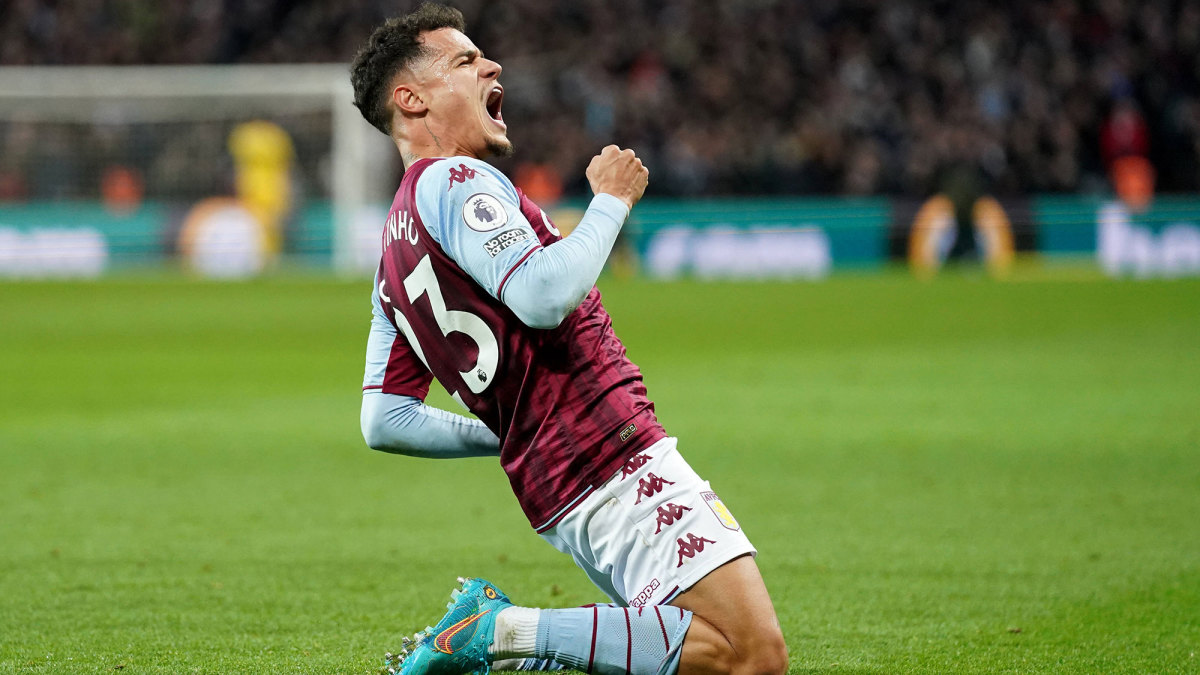Coutinho’s Transfer Marks the End of Barcelona’s Costly Error

It’s the end of an error.
One of the most dispiriting stints for any player at any club in football history technically and officially concluded on Thursday with confirmation that, nearly four-and-a-half years after joining Barcelona for an initial £105 million fee (£142 million with add-ons), Philippe Coutinho has moved to Aston Villa on a permanent transfer for a relatively paltry £15 million ($21 million) after excelling on loan this winter and spring. Through no great fault of his own, the Brazilian has come to symbolize the calamitousness of Barcelona’s post-Neymar years, and it feels as though his departure is a vital part of Xavi’s process of renewal.
In his time as a Barcelona player, Coutinho scored 41 times in 160 games, which doesn’t sound too bad—it’s just that only 26 of those goals were for Barcelona and two of them, notoriously, came against Barcelona for Bayern Munich in the most humiliating result in the club’s history, an 8–2 defeat in the Champions League quarterfinals in August 2020.

It’s not really Coutinho’s fault. He was never what Barcelona wanted him to be. After Paris Saint-Germain had signed Neymar in the summer of 2017 for a staggering €222 million, more than doubling the existing world record—the first time since the 1890s that the record fee had made such a leap—Barcelona was left with two problems.
First, Neymar was the club’s future: he was the youngest of the vaunted Lionel Messi–Luis Suárez-Neymar front line, and the assumption had been that he would, in time, come to succeed Messi as the icon of the team. Barcelona needed a young(ish) creator who could take on that mantle.
And second, there was a sense of humiliation. Barcelona was supposed to be one of the world’s elite. How could it be nudged aside by a richer rival, as it had been when Real Madrid had snatched Luis Figo in 2000? All those old neuroses from the 1970s and ’80s, all the pre–Cruyff Dream Team sense of inferiority, bubbled to the surface. It had money and there seemed an imperative to spend it, to go out and blow the lot on a couple of stars to make a point (Ousmane Dembélé, bought from Dortmund for £135.5 million, was the other; his time at the club has been marred by injury and contract dispute, but he does lead La Liga in assists this season). Liverpool played the situation perfectly, persuading Coutinho to sign a new contract in January ’17, then dragging out negotiations to January ’18 to secure the biggest possible fee, which they used to sign Virgil van Dijk and Alisson. That is the oddity of the Neymar signing. The only real beneficiary was Liverpool.
Coutinho’s debut for Barcelona came in the Copa del Rey against Espanyol. He made a promising start: a few nice touches and a nutmeg that delighted fans desperate for a new hero. But Coutinho was neither the new Andres Iniesta nor the new Neymar, nor even really some hybrid of the two. Rather, with his reluctance to press and his inconsistency, he had come to seem something of a luxury, and this was a Barcelona side whose aging midfield was already struggling to cover for an increasingly indulgent forward line.
When Barcelona met Liverpool in the semifinals of the 2019 Champions League, he was jeered by fans of both sides. In both games he was taken off after around an hour. To see him sitting in the bench at Anfield that night as Liverpool mounted one of the most unlikely comebacks in the history of the competition was to see a player looking at how his career might have turned out. Instead, he became the butt of a joke in the “We’ve got Salah” viral chant.

An official and final parting from Barcelona was necessary for both parties. As Xavi rebuilds, highly salaried reminders of the recent past have to be moved on. Coutinho turns 30 in June. He still should have two or three years left at the very highest level, maybe longer. Aston Villa, without question, is a step down, but he has rejoined a teammate from his Liverpool days in Steven Gerrard, now the manager at Villa Park who clearly values him.
“This is a brilliant signing for Aston Villa. Phil is a model professional and his impact on the group has been very clear since he joined in January,” Gerrard said in a statement. “With the way he conducts himself on and off the pitch, he’s also a valuable role model for our younger players who can only benefit from his experience.”
There is a danger Coutinho is on the James Rodríguez pathway: too skillful and expensive for the vast majority of clubs, but lacking the sense of defensive responsibility required by the very elite. Villa could easily be his Everton. This, too, is a club comprising expensive players who have not quite made it elsewhere, the very young talents on the rise—and Lucas Digne.
But it’s also possible that Villa will prove to be the ideal home, a club just below the very elite where his skills can flourish and he will be cherished for what he is rather than being criticized for not being quite what people might want him to be. Barcelona’s rebuilding, meanwhile, can continue, its quantifiable loss on a misguided transfer gone horribly wrong hitting its final tally.
More Soccer Coverage:
